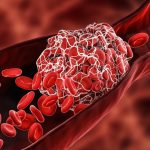Multiple Sclerosis Treatment with Infusions
While ongoing research seeks to eradicate multiple sclerosis (MS), multiple sclerosis treatment using infusion therapy has proven effective in helping reduce symptoms. At Personalized Hematology-Oncology, we treat MS patients at our Certified Infusion Center.
What is MS?
Multiple sclerosis is a disease affecting the central nervous system (brain, spinal cord and optic nerves). MS damages the protective sheath, or myelin, that covers nerve fibers. The exact cause is unknown, but it is considered an autoimmune disease.
The disease affects nearly one million people, according to The National MS Society. The onset of MS usually occurs between the ages of 20 and 50. Women are three times more likely to develop the disease.
World MS Day is recognized every May with activities and events throughout the month. It’s an opportunity to share stories, raise awareness and campaign for a future in which the disease is conquered.
Facts about MS
MS symptoms include:
- Fatigue
- Muscle weakness
- Slurred speech
- Dizziness
- Vision problems
- Trouble with coordination and balance
- Memory problems
- Sensations such as numbness, prickling or “pins and needles”
There are four types of MS:
- Clinically isolated syndrome (CIS) is the first episode of MS that causes at least 24 hours of neurological symptoms.
- Relapsing-remitting (RRMS) is the most common form of MS diagnosed in 85% of patients. It produces increasing bouts of symptoms with periods of relapse or partial recovery.
- Secondary-progressive MS (SPMS) occurs after RRMS. Neurological function usually worsens progressively.
- Primary-progressive MS (PPMS) is when neurologic function worsens, causes disability and does not have a remission or relapse episode.
Diagnosing one of these types of MS can help patients understand what to expect long-term. It also helps healthcare providers determine the best form of multiple sclerosis treatment.
There is no single test to diagnose people with MS. Doctors rely on medical history, physical and neurological exams, MRI and blood tests. Medications like infusion treatments help slow the disease’s progression and treat symptoms.
Treating MS with infusions
Among the various multiple sclerosis treatments, infusion therapy has been successful for many patients. Infusions deliver medication to a patient intravenously with a needle or catheter. Treatments are administered in a doctor’s office or infusion center so that patients can be monitored.
There are two types of infusion treatments for MS: disease-modifying therapies and therapies for relapses.
Disease-modifying therapies
Disease-modifying therapies (DMTs) help to slow MS activity and progression. This multiple sclerosis treatment is a key component of overall MS care and relapse management.
DMT infusions do not reverse damage to the nervous system but can treat and slow down future disease progression. They can also reduce the frequency and severity of relapses or clinical attacks, delay advancing disability and lower new inflammation.
Some DMTs therapies are linked to potentially serious adverse reactions, so careful monitoring is required. Newer DMTs have shown better short-term outcomes, but more data about their long-term effects and reactions are needed.
Infusion therapy is used to deliver the following DMTs on a specific schedule based on your disease progression and condition:
- Briumvi (ublituximab): administered every six months in an hour-long session
- Lemtrada (alemtuzumab): given in two rounds of four-hour infusions over several days, one year apart
- Novantrone (Mitoxantrone): administered every three months
- Ocrevus (ocrelizumab): given every six months
- Tysabri (natalizumab): administered during an hour-long infusion every four weeks
Therapies for relapses
Most patients with MS experience relapses, attacks, exacerbations or flare-ups of the disease. An MS relapse is defined as new or returning neurological symptoms that have evolved over at least 24 to 48 hours. A relapse involves the worsening or recurrence of existing symptoms or the appearance of new ones.
Relapses occur in RRMS and SPMS but do not usually happen in patients with primary-progressive MS. However, patients with PPMS may have symptoms that fluctuate.
Relapses can last anywhere from a few days to a few months, followed by a complete or partial recovery, called remission. These relapses can interrupt the patient’s ability to function. Severe relapses require treatment to accelerate recovery.
For acute relapses, steroids known as glucocorticoids are prescribed to shorten the severity and duration of the attack. They reduce inflammation from various conditions, such as allergic reactions and asthma. These steroids are given to MS patients intravenously.
Steroids like methylprednisolone and dexamethasone are administered daily for three to five days. In some cases, the IV steroid is followed by steroid pills in a tapering dose for an additional week or two. These treatments can lessen the severity and length of a relapse. They do not appear to affect the long-term progression of the disease.
MS treatments are evolving as new breakthroughs become available. Early treatment can delay the progression of the disease for years. Infusion therapies can decrease inflammation that causes symptoms. MS is not curable, but the goal of infusion therapy is to help patients manage the symptoms of the disease.
What happens during an infusion?
At Personalized Hematology-Oncology, we conduct outpatient treatment in our Certified Infusion Center. We offer private care with one-on-one interaction with our patients.
During an MS infusion treatment, one of our medical professionals will administer medication with a sterile catheter inserted into a vein. The medicine will be delivered intravenously over the course of the recommended treatment. Some infusions are an hour long, while others may take several hours.
Patients are welcome to bring a book or another quiet activity to occupy their time. Our staff will check on the patient throughout the procedure. Once the infusion is complete, the individual will be monitored to ensure against any side effects.
Multiple sclerosis treatment in Raleigh, Durham
Personalized Hematology-Oncology is a Certified Infusion Center serving Raleigh, Durham and the surrounding region. We treat many conditions with intravenous medication, including multiple sclerosis treatment. To learn more about our practice or to make an appointment, please get in touch with us today.





